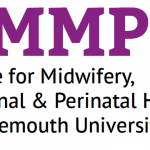Mental health psychology practitioners (MHPPs) are likely to experience stress related to the responsibilities of their role as it exposes them to other people’s traumatic life experiences, a phenomenon called “vicarious traumatisation”. This refers to the emotional and cognitive disruptions faced by therapists, as they engage in therapeutic relationships with survivors of traumatic events. During times of excessive stress, such as the COVID-19 pandemic, it is important to examine the factors that might enhance coping skills and resilience in this group of professionals, as their role in fighting off the negative psychological effects of COVID-19 is crucial. The term “resilience” refers to a group of factors that promote positive mental health and well-being in individuals exposed to threatening conditions, traumatic experiences, or severe adversity.
In a study conducted in the UK by researchers at BU (Dr Constantina Panourgia, Dr Ala Yankouskaya, Dr Agata Wezyk, and Miss Zoe Taylor) in collaboration with University of West London and UCLy in Lyon, participants were invited to talk about their reality, including the effects of vicarious traumatisation on their well-being and strategies they employed to sustain positive mental health and demonstrate resilience.
According to the MHPPs who participated in the study, the pandemic affected them and their clients in different ways. Frequent occurrence of relationship violence, the effects of unemployment, suicide attempts, loneliness, and increased use of alcohol were among the topics their clients highlighted as factors affecting their stress and well-being. Also, the unavailability of stress relief strategies that people usually employed rendered MHPPs’ roles in supporting their patients more vital than ever. However, many of them perceived this as an extra burden and reported feelings of inadequacy and anger. Sleeplessness, flashbacks of their clients’ stories, helplessness, vulnerability, identification with patients’ fears, as well as a tendency to question their abilities as practitioners, were among the symptoms MHPPs experienced.
The MHPPs who participated in this study also reported several mechanisms they employed to maintain positive well-being and develop resilience during these unprecedented times. The importance of frequent, systematic supervision sessions was described as the key factor affecting their well-being and helping them set boundaries between their personal and professional lives. Moreover, practising yoga, meditation, and using delta 8 carts were described as useful tactics in building stress resilience, along with taking up new hobbies and avoiding social media. Finally, seeking social support, having self-awareness, and being able to manage their emotions were reported as key factors in helping them distinguish among their different roles (parents, friends, and therapists) and perform their duties.
The need to train and prepare MHPPs for situations that can be described as collectively traumatic was highlighted by this study’s results. The development of strategies and follow-up care programmes to alleviate the symptoms of vicarious traumatisation might help this group of practitioners develop resilience and be less susceptible to occupational risks, resulting in better outcomes for service users.
For more details: https://uwlpress.uwl.ac.uk/newvistas/article/id/121/
 New publication from the Department of Psychology
New publication from the Department of Psychology Two new academic papers on COVID-19 research
Two new academic papers on COVID-19 research Another CMMPH COVID-19 publication on fathers
Another CMMPH COVID-19 publication on fathers










 New CMWH paper on maternity care
New CMWH paper on maternity care From Sustainable Research to Sustainable Research Lives: Reflections from the SPROUT Network Event
From Sustainable Research to Sustainable Research Lives: Reflections from the SPROUT Network Event REF Code of Practice consultation is open!
REF Code of Practice consultation is open! ECR Funding Open Call: Research Culture & Community Grant – Apply now
ECR Funding Open Call: Research Culture & Community Grant – Apply now ECR Funding Open Call: Research Culture & Community Grant – Application Deadline Friday 12 December
ECR Funding Open Call: Research Culture & Community Grant – Application Deadline Friday 12 December MSCA Postdoctoral Fellowships 2025 Call
MSCA Postdoctoral Fellowships 2025 Call ERC Advanced Grant 2025 Webinar
ERC Advanced Grant 2025 Webinar Update on UKRO services
Update on UKRO services European research project exploring use of ‘virtual twins’ to better manage metabolic associated fatty liver disease
European research project exploring use of ‘virtual twins’ to better manage metabolic associated fatty liver disease